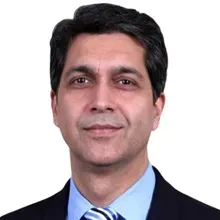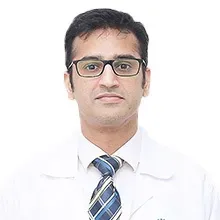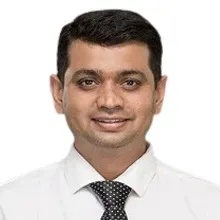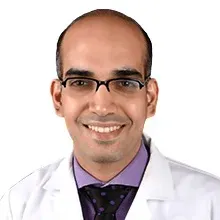Overview of Cosmetic Plastic Surgery Maxillofacial Treatment India
Maxillo is derived from a Latin word that means jawbone. The full term maxillofacial means jawbones and the face, and maxillofacial surgery is a field of medicine specializing in treating conditions in this area through surgical procedures. Maxillofacial is a reconstructive surgical procedure of oral cavity, face, head, and neck, facial trauma surgery, jaws, mouth, and facial cosmetic surgery. If there is an issue in jaws, teeth, bones, or face tissues that causes pain, one must visit an oral and maxillofacial surgery specialist. Oral and maxillofacial surgeons are specialists with extensive training in dental medicine. An oral surgeon may not be able to perform surgical or advanced procedures, however, there is no such dental surgery that a maxillofacial surgeon cannot perform. Maxillofacial specialists can perform dental implants, tooth extractions, gum surgery, and more.
Types of Cosmetic Plastic Surgery Maxillofacial Treatment India
Preoperative Evaluation
Before surgery, the surgeon may order several tests, including:
01. Mouth X-ray - It is a type of radiation called electromagnetic waves used to create pictures of the inside of the mouth.
02. Panorex - A type of X-ray that provides a full view of teeth, upper and lower jaws, and sinuses.
03. Computed Tomography (CT Scan) - It uses rotating x-ray and computers to create three-dimensional images of the surgical site.
04. Magnetic Resonance Imaging (MRI Scan) - This imaging technique is used to get a clear image of soft tissues
05. Duplex Ultrasound - The doctor will recommend this test to evaluate blood flow through veins and arteries
06. Nerve Conduction Studies Test (NCS) - This test is done to detect areas of nerve damage muscles of the face
Maxillofacial Surgery Procedures
There are several types of oral and maxillofacial surgeries and common surgical treatments include:
01. Orthognathic Surgery - Orthognathic means straight jaw and its surgery involves both orthodontics and oral and maxillofacial surgery. To get a straight jaw, an osteotomy is performed. Osteotomy involves cutting parts of the jaw into fragments of bone that can be removed and repositioned to get the desired shape. This procedure is performed when a patient has difficulty in eating or biting, speech abnormality, facial deformity and poor dental discrepancies.
02. Craniofacial Surgery - This surgery is performed on affected hard and soft tissue in the face and head. Below given are the few conditions which are treated by craniofacial surgery:
03. Craniosynostoses - It is a birth defect in which joints between the bones of a baby's skull close prematurely.
04. Craniofacial Dysostosis Syndromes - It is a collection of conditions such as abnormality of the skull, face and limbs. The main problem is coronal sutures are fused in the skull, which changes its shape to tall or wide.
05. Encephalocele - It is a rare birth defect in which neural tube do not close completely during pregnancy and causes a pouch-like protrusion from the brain.
06. Craniofacial Clefts - It is a large group of face and cranium defects, including cleft palate and lip. Cleft lip and palate are congenital defects that happen during pregnancy and are caused when a baby's lips do not grow properly. The surgery to repair this issue is performed when a child is between 6 and 12 months old. All these conditions develop in children under the age of 2. This is major surgery with significant blood loss.
07. Dentoalveolar Surgery - There are several problems with gum, teeth, jawbone, and other soft tissue of the mouth that require this treatment. This procedure is performed to treat:
7.1. Cysts in the jaw
7.2. Removal of a decayed or fractured tooth
7.3. Removal of wisdom or canine teeth
7.4. Tooth transplantation to fill a gap created by a lost tooth
08. Facial Aesthetics - This surgery is also performed to improve facial aesthetics, including:
8.1. Rhinoplasty to reshape the nose
8.2. Genioplasty to treat chin deformity
8.3. Pinnaplasty to treat bat ears
8.4. Jaw joint problems
Temporomandibular joint problems are categorized into two groups - first, the anatomy is normal but the function is not and the second type is where anatomy is abnormal but function may not be normal. For the first category, conservative measures such as diet plan, exercise, or medicines are taken. However, the second category may require surgical treatment. The surgeries performed to treat this problem are usually complex.
Diagnosis of Cosmetic Plastic Surgery Maxillofacial Treatment India
Maxillofacial Purpose
Maxillofacial surgery is an advanced form of oral surgery performed by a maxillofacial surgeon. This type of surgery is performed to treat:
01. Abnormality of the nasal cavity
02. Face trauma
03. Abnormal growth in head, neck or mouth
04. Difficult tooth extractions
05. Cleft palate or lip
06. Abnormality in biting
07. Facial pain
08. Bone-fused dental implant
Symptoms and Risk factors
Maxillofacial Recovery
After maxillofacial surgery, the doctor will provide recovery instructions, including what to eat, oral hygiene, and more. The total recovery time is about 6-12 weeks. A patient can resume work or school within 3 weeks. However, some more points to speed up the recovery process are:
01. Avoid tobacco
02. Avoid vigorous activity
03. Take timely pain medications
04. Follow the recommended dietary plan
Top Doctors for Maxillofacial in India
Empower your Health with the Expertise of Leading Medical Professionals.
Dr. Rishi Khosa
Department of Cosmetic Surgery & Dental
Consultant
Book Appointment
Treatment Costs for Maxillofacial
Be the change and be an opportunist in transforming healthcare.
How it's Works
Guiding your Journey from Discovery to Treatment Planning and Beyond.
Discovery
Get a consultation to discover about your treatment
Pre-Treatment
Admission to the best hospital and all pre-treatment facilities
Post Treatment
Get post-treatment follow-up care with medicine fulfillment
Treatment Planning
Hassle-free treatment planning with package & cost estimations
in-treatment
world-class quality procedures and equipment for treatment




















